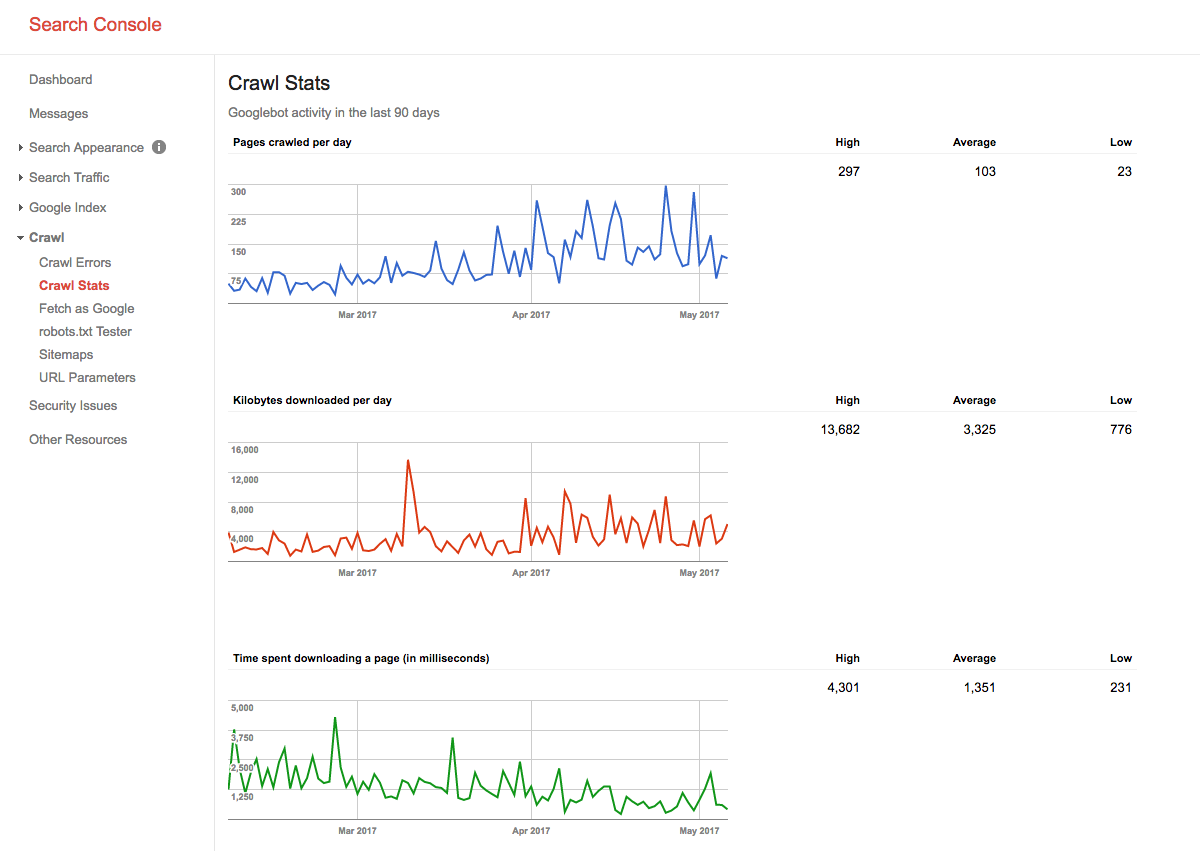So what are the indexing factors that matter? You want an efficient index rate for your website. That means you want search engine spiders...
So what are the indexing factors that matter?
You want an efficient index rate for your website.
That means you want search engine spiders to find your new content as quickly as possible after you hit publish.
You can check how often Google is crawling your pages by logging into Search Console.
Not set up with Google Search Console yet? Jump down to Step 2 to learn how to get your website set up.
In Search Console, click on your website. Then click on Crawl -> Crawl Stats. You’ll see some graphs like this:

The first graph – the blue one – shows how often Google is crawling your site.
Those are my graphs. As you can see, the blue one is trending upward. That graph — the “Pages crawled per day” one — shows how often Google is crawling my site each day.
As a rule of thumb, the more crawling the better.
There are some cases, however, where too much crawling can overload your server resources. Typically it’s the result of a server misconfiguration instead of an issue with Google’s spiders.
This is very rare though, so you probably won’t need to worry about this. Google allows you to change the crawl rate (only down, not up) if this is happening to you.
So what did I do to increase my crawl rate?
I’ve been posting a lot lately and updating older content, so Google is eager to get all my updates and changes as fast as it can. It’s learning to check in with me more often.
I also switched to a new web host in April that is much faster than my old one. You can see in the green chart above that the loading time for my website has decreased dramatically since March.
The faster your site loads, the faster Google can come in and index it!
Google wants to recommend the best websites to its users. It looks for sites that offer a good user experience. While that includes many factors, quality content and site loading speed is highly important.
To put it simply:
Faster site = better user experience.
Better user experience = higher search result rankings.
More important than how often Google indexes your site is how many pages it’s indexing. You want to ensure as many of the pages on your site as possible are indexed.
Don’t worry, your sitemap will take care of that, which I cover in detail in Step 7.
But first, let’s start at the beginning. The following 18 steps will guide you through everything you need to know about getting your website indexed.
You don’t necessarily need to do all 18 steps to have a well-indexed website, but if you’re wondering how to rank higher in Google, this is the only guide you’ll ever need!






